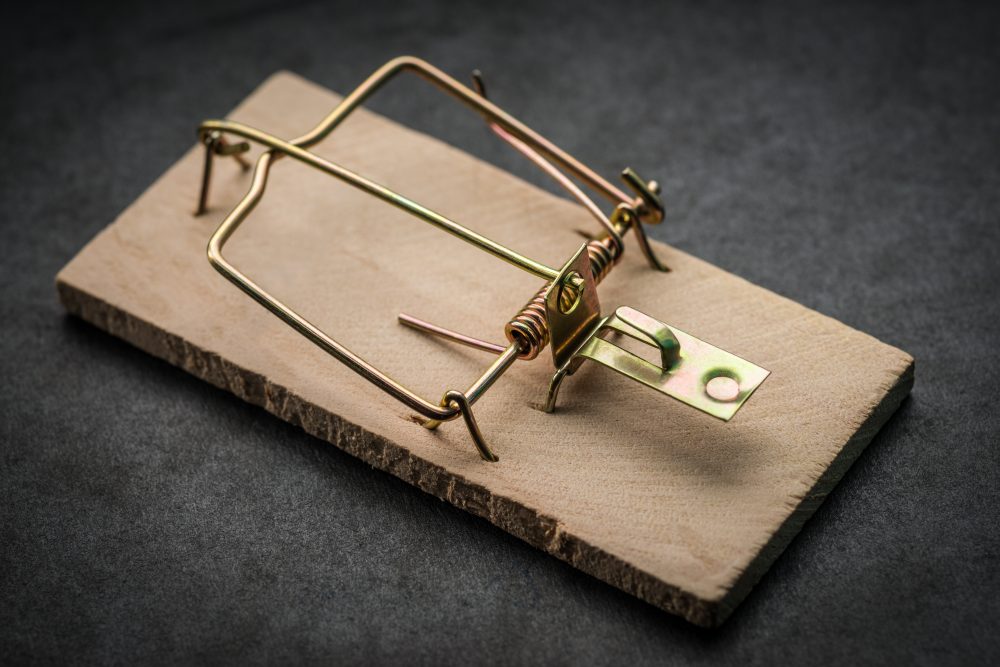


Behe Counters the Best Objections to Irreducible Complexity and ID, Pt 3
On today’s ID the Future biologist Michael Behe and Philosophy for the People host Pat Flynn conclude their conversation (posted by permission here) about some of the best objections to Behe’s central case for intelligent design. One objection Behe and Flynn tackle in this episode: the idea of evolution overcoming the irreducible-complexity hurdle through co-option. That is, maybe the precursors to what would become one of today’s molecular machines, such as the bacterial flagellum motor, co-opted simpler machines being used for other purposes, allowing evolution to build a bacterial flagellum motor one small step at a time over thousands or millions of generations, even though the completed bacterial flagellum ceases to function at all when just one of its many key parts Read More ›

Behe and Ramage: Evolution’s Limits and the Fingerprints of Design
Today’s ID the Future wraps up a debate over evolution and intelligent design between Lehigh University biologist Michael Behe and Benedictine College theologian Michael Ramage. Both Behe and Ramage are Catholic, and they carry on their conversation in the context of Catholic thinking about nature and creation, in particular the work of Thomas Aquinas and contemporary Thomist philosophers. Ramage seeks to integrate his Thomistic/personalist framework with modern evolutionary theory’s commitment to macroevolution and common descent. Behe doesn’t discount the possibility of common descent but lays out a case that any evolution beyond the level of genus (for instance, the separate families containing cats and dogs) cannot be achieved through mindless Darwinian mechanisms and, instead, would require the contributions of a Read More ›

Behe and Ramage Debate, Pt. 2: Evolution, ID, and Aquinas
Today’s ID the Future continues the conversation between Catholic intelligent design biologist Michael Behe and Catholic theologian Matthew Ramage. Both agree that nature points to a cosmic designer, but Ramage says he prefers, on aesthetic grounds, the idea that the biological realm has the capacity, gifted by God, to evolve on its own without the need for intervention by God. Behe notes that people have different aesthetic predilections, but it’s the scientist’s job not to figure out how he would have preferred things to have happened in nature, but to discover how they actually did come about. Behe also says that while the sun, moon, and stars do move according to fixed natural laws, it doesn’t follow from this that Read More ›

Into the Mystic with a Neurosurgeon and a Neurotheologian
Today’s ID the Future continues the conversation between neurosurgeon Michael Egnor and neurotheologian Andrew Newberg. In this second and concluding part of their discussion, they further explore what experiments using brain scans reveal about how the brain is affected by meditation and mystical experiences, including near-death experiences. Also, what parts of the brain light up, and what parts go dormant, when someone is “speaking in tongues,” and how does someone who has this experience describe it, and does that description mesh with or clash with what turns up on the brain scans? Tune in to hear Newberg’s answer to this and other issues related to the mind-brain problem and the mystical. This interview is posted here by permission of Mind Read More ›

Neil Thomas Talks Darwin, Aquinas, OOL and … Young Frankenstein
On this ID the Future, Taking Leave of Darwin author Neil Thomas continues a lively conversation with radio host Hank Hanegraaff. In this second in a three-part series, the two touch on the fossil record’s challenge to Darwinism, Gould and Eldredge’s rescue attempt, the question of whether Darwin’s best known contemporary defender is dishonest or merely self-deluded, the wishful thinking surrounding origin-of-life studies, the failed attempts to reduce the mind to mere brain chemistry, and the morally repugnant pro-eugenics ideas rooted in Darwinism and touted in the textbook at the heart of the famous Scopes Monkey Trial. The conversation is posted here by permission of Hank Hanegraaff. Get Neil Thomas’s book here.

ID Pioneer Michael Behe Tangles with Two Philosophers, Pt. 2
In today’s ID the Future, intelligent design pioneer Michael Behe continues his conversation with philosophers Pat Flynn and Jim Madden. Here in Part 2 of a three-part series, Behe offers an illustration from language and Madden presses him, noting that meaning detection in language is not parts to whole. A lively exchange ensues and then Behe turns the discussion back to his primary focus, detecting design in molecular biological machines by recognizing the purposeful arrangement of parts. From there the conversation turns to everything from epigenetics, systems biology, and autopoiesis to co-option, mousetraps, tie clips, biologist Kenneth Miller, and the philosophers Aristotle and Thomas Aquinas. For Behe’s newest book, A Mousetrap for Darwin, go here. This discussion is presented here with permission of philosopher Read More ›

Biologist Michael Behe Tangles with Two Philosophers, Pt. 1
Today’s ID the Future features Darwin Devolves author and Lehigh University biologist Michael Behe speaking about the logic and evidence of intelligent design with two philosophers, Pat Flynn and Jim Madden. In a friendly, stimulating exchange, Flynn and Madden press Behe with objections — some philosophic, others scientific — to see how well his position stands up to scrutiny from experts who have engaged the subject. Here in Part 1 of a three-part series, Behe counters the charge that ID is an argument from ignorance, and then the three men compare the contemporary design argument to philosopher Thomas Aquinas’s fifth way. For Behe’s newest book, A Mousetrap for Darwin, go here. This discussion is presented here with permission of philosopher Read More ›

Pat Flynn and Stephen Meyer Talk Thomism and Intelligent Design
On today’s ID the Future, Return of the God Hypothesis author Stephen C. Meyer sits down with podcaster and philosopher Pat Flynn to discuss Meyer’s new book. Flynn notes that some contemporary followers of the great medieval Catholic philosopher Thomas Aquinas argue that the theory of intelligent design is incompatible with Thomism. In response Meyer, a philosopher of science and the director of Discovery Institute’s Center for Science and Culture, points out that some Thomists are fully on board with ID, and he offers reasons why he sees ID as fully compatible with Thomistic philosophy. Flynn and Meyer then move into a discussion of Meyer’s new book with a particular focus on the sections exploring the beginning of the universe Read More ›

Return of the God Hypothesis: Q&A with Stephen Meyer, Pt. 2
On today’s ID the Future Stephen Meyer continues fielding questions about his new book, Return of the God Hypothesis. The occasion was a live Zoom event for people who had pre-ordered the book. Daniel Reeves emceed, and here in the second part, Meyer rebuts the objection that intelligent design is an argument from ignorance. He also answers another objection, namely that our uniform experience with designing minds is that minds are embodied in material brains and yet Meyer seems to infer a non-embodied mind as the explanation for the design of life and the universe. Meyer also lists some prominent scientists who have either endorsed the book or championed key arguments in the book. Meyer is the Director of Discovery Institute’s Center for Science Read More ›